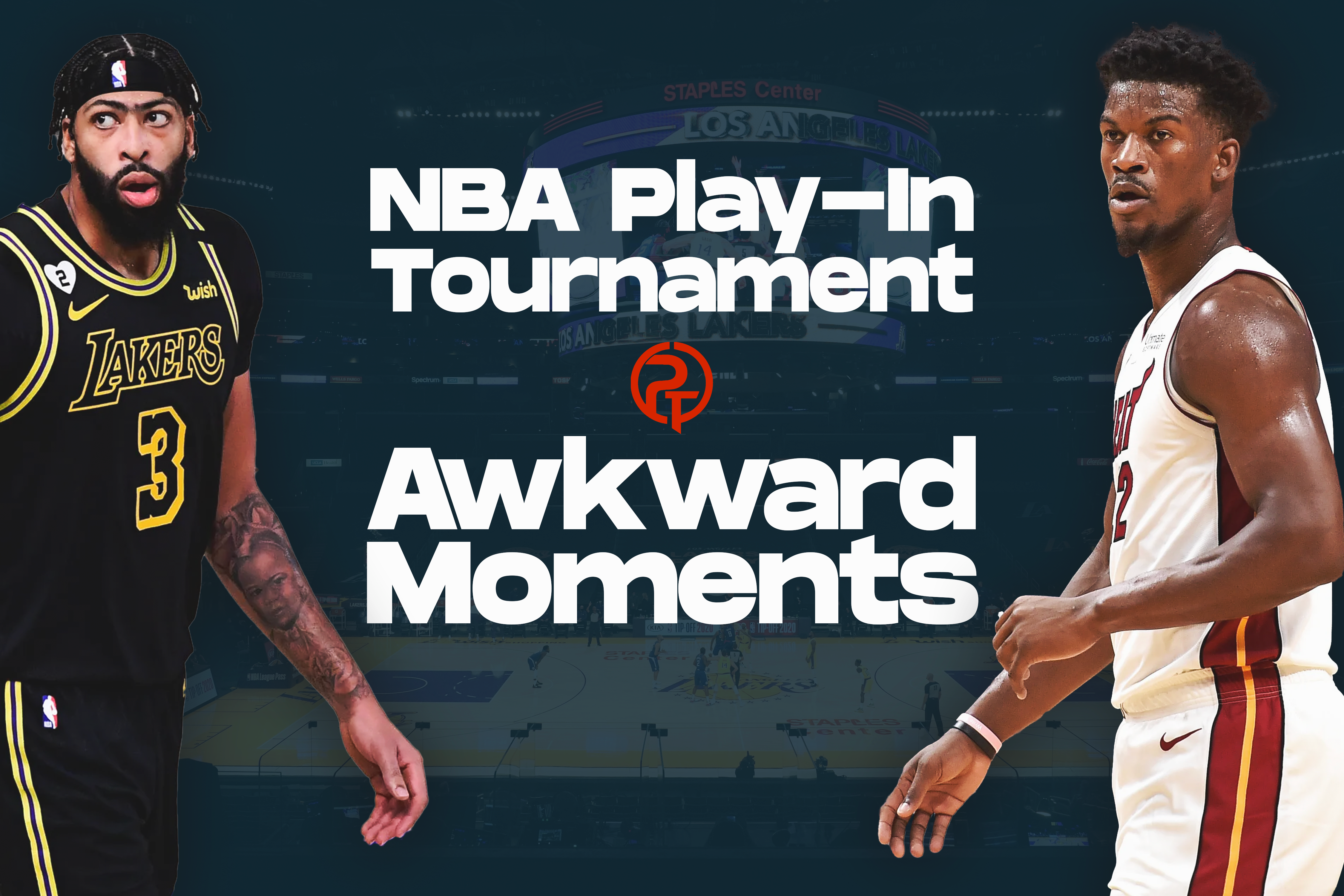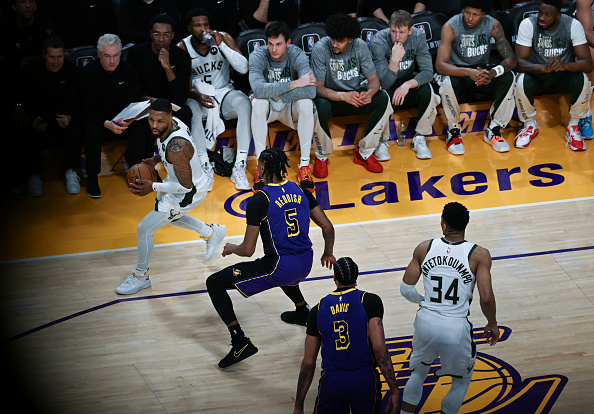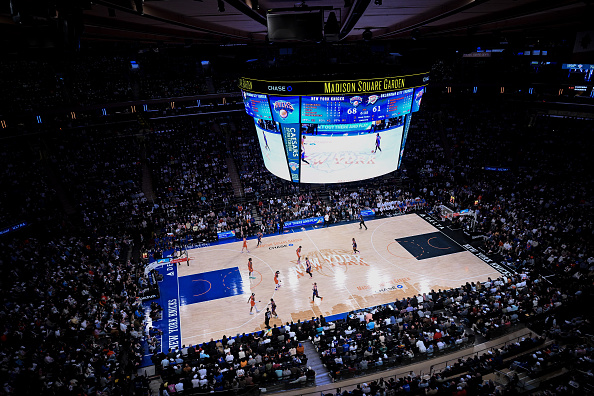- Josh Elias | September 9th, 2019
Considering the start of the NBA’s existence was ushered in with complete dominance from the team representing the city of Minneapolis, there was bound to be a certain air of excitement emanating throughout the Twin Cities when it was announced that, after nearly thirty years of absence, professional basketball would be returning to the city that was once able to claim many of basketball’s biggest stars – George Mikan, Vern Mikkelsen, Elgin Baylor, Clyde Lovellette, and Slater Martin – as well as four of the first five NBA championships.
It may seem retrospectively inevitable that the Lakers would immediately be worthy holders of the forefront of basketball lore, but it wasn’t at the time. Originally founded by a man who, no joke, was named King Boring, the story of the Minneapolis Lakers began in Detroit as the Detroit Gems, a team that won a grand total of four games in their only year in the Motor City. After that lone 1946-47 season, they were running out of money so quickly and so near bankruptcy that the league had actually already held the allocation draft to send all their players’ rights to other teams in the NBL by the time they were bought.
They arrived in Minneapolis with zero players.
The day after they arrived there, the NBL held a draft made up of players from the recently disbanded Professional Basketball League of America. The majority of this draft was seen as irrelevant, as this was an underfunded league with three larger competitors, and the PBLA didn’t even last a full year. A grand total of six players from that league would ever play a game in the NBA, created just two years later.
Those six players consisted of three guys who didn’t like being called William – Billy Hassett, Bill Roberts, and Bill Henry – Bruce Hale, who played two seasons for the Indianapolis Olympians and who has five grandchildren that combine for 31 years of NBA experience and 54 (and counting) years of professional basketball, George Ratkovicz, who carved out a solid NBA career for himself as a starting power forward in Syracuse and Milwaukee, and Mikan.
If the Gems’ sale and move to Minnesota had happened just one day later, they wouldn’t have been in that draft. He would’ve been selected by the Tri-Cities Blackhawks instead, just two hours away from his hometown of Joliet, Illinois. His jersey would be hanging in the rafters of the State Farm Arena in Atlanta instead of hanging in the Stap… oh right, the Lakers refuse to retire his jersey even though they still claim the five championships he led them to.
The Timberwolves were the first expansion team to draw over a million fans in their first season. Now, as we come upon the thirtieth anniversary of the first time they stepped on the court, much of that excitement has all but vanished for all but a select few loyal fans. That’s despite having a roster including perhaps the most technically skilled young big man in the league in Karl-Anthony Towns, one of the best role players of this era in Robert Covington, no players older than the 31-year-old Jeff Teague, a staff made up of only coaches under 50 years old for the express purpose of more hands-on work with players, and the next Kobe Bryant an extremely talented wing player who just happens to have the work ethic of a comatose sloth attached to a morphine drip.
In any other city, this team would be one that evokes some optimism. Extremely cautious, guarded optimism, but optimism nonetheless.
But Minneapolis lived through four years of David Kahn.
As a native Oregonian, I would like to apologize to the good folks of Minnesota (and even many of the bad ones) for how the Portland Trail Blazers inspired Kahn to join the basketball world. You guys didn’t deserve that.
Kahn is most infamous for drafting three point guards in the first round of the 2009 NBA Draft, in which he selected Jonny Flynn and Ricky Rubio over Stephen Curry and traded Ty Lawson (who notably had a much better peak than either Flynn or Rubio) for a future first-round pick which he then packaged along with their starting small forward, Ryan Gomes, for an injured Martell Webster, who would be their… backup small forward?
That was just a month into the job, and don’t worry, his other draft night decisions didn’t make any more sense.
That same night, the Timberwolves had two second-round picks. He used the first one on… a fourth new point guard. Nick Calathes, from Florida. Kahn then traded him for a player who would never make an NBA roster and used the other pick on a different player who’d never make an NBA roster.
He got two more chances in the lottery, both top five picks, but after he chose Wesley Johnson at number four, directly over DeMarcus Cousins, and then traded Johnson away in a salary dump two years later, still during his rookie contract, and chose Derrick Williams with the second pick the next summer (more defensible, as he was the consensus number two choice that year), who they later traded for a rental of Luc Mbah a Moute, it’s safe to say Kahn should’ve never been let near a basketball team.
Somehow, none of those is the dumbest draft-night mistake Kahn made while in charge of the Timberwolves though.
With the 57th pick in the 2011 NBA Draft, the Timberwolves selected Tanguy Ngombo, a small forward for Al-Rayyan, the champions of Qatar. He was such an unknown that ESPN aired a picture pulled from the top of Google Images and a YouTube video when he was drafted, and, more importantly, was completely ineligible for the draft, having lied about his age in the registration process and actually being nearly 27 years old.
How was he found out? Well, it so happens that the FIBA World Cup Qualifiers were happening at the time and he was playing for Qatar.
And FIBA’s official website had the roster listed, with Ngombo’s actual birth date.
FIBA is literally the Federation of International Basketball, and neither Kahn nor anyone else in his front office even thought to check the Federation of International Basketball for information about the international basketball player they were about to draft.
Ngombo is banned from the NBA.
Well, at least no one else available at that pick mattered.
Except for future MVP candidate Isaiah Thomas, picked three selections later. The one time Kahn should’ve taken the point guard.
If that doesn’t convince you enough that Timberwolves fans are right to be skeptical, how about their highest-profile free agent signing?
Joe Smith was seen as the perfect post pairing for Kevin Garnett as Garnett was entering his prime. He’d just come off a rough ending to the season after demanding a mid-season trade to Philadelphia the previous year, so he was cheap, but also seen as a possible all-star talent.
As it turned out, not only was Smith such a poor fit in the post next to Garnett that he ended up mostly playing small forward instead of center, the signing was illegal as well.
They had nearly half a decade’s worth of first-round picks revoked as punishment for an illegal, under-the-table agreement with Smith’s agent, and that all but destroyed Garnett’s chances of contending during his prime.
Another thing that plagues the Timberwolves is an eternal carousel of Andrew Wigginses.
Not literally, that would be quite offputting, but the past presence of Isaiah Rider, Stephon Marbury, Oliver Miller, Charles Smith (who they signed after he killed two people), Latrell Sprewell, Michael Olowokandi, Eddie Griffin (RIP), Rashad McCants, Anthony Carter, Antoine Walker, Kirk Snyder, Dante Cunningham, Darko Milicic, Michael Beasley, Sebastian Telfair, Lance Stephenson, Jordan Hill, and Shabazz Muhammad on the team is almost equally offputting as that image. All had major issues with either work ethic or character, and most had issues with both. And of the last 25 years, one or more of those guys was on the Timberwolves roster for 20 of them.
Out of that long list of… I’ll be nice here and call them characters, the one that is easily the most entertaining is Michael Beasley. Ironically, he did quite well during his first season in the Land of 10,000 Lakes, averaging nearly 20 points per game.
In true Michael Beasley fashion, the second of his two years there saw him benched almost the entire season and playing with about half as much productivity as the year prior.
That season saw the Timberwolves in the playoff race until quite late in the season anyways though, despite what the final record says. They did end up as the twelfth seed, with a 26-40 record, but only because they lost 12 of the last 13 games. At the end of March, they were still just two games behind the eventual eighth seed Utah Jazz.
This was the first time they looked like they might even come close to sniffing the playoffs in seven years, since the team’s core was composed of Garnett, Sprewell, Wally Szczerbiak, and Sam Cassell, and it was an exciting time despite the turmoil.
Unfortunately for Timberwolves fans and fortunately for fans of comedy, David Kahn was Team President at the time, which meant that everything would fall apart in some ridiculous way that would combine blasphemous levels of front office incompetence and the point guard position.
Just days before the (lockout-belated) trade deadline, emerging rookie floor general Ricky Rubio tore his ACL, ending his season early, but just in time for them to be able to find a replacement to help them fight for the playoffs.
So, as one does, Kahn decided the best course of action would be to ignore all conventional wisdom signaling that a trade for a stopgap point guard option with winning experience, a penchant for avoiding risks, and a good locker room presence would be the obvious move, and instead made the move to recall injury-prone rookie combo guard Malcolm Lee from an assignment to the D-League’s Sioux Falls SkyForce.
Now would be a good time to note that, without Rubio, they were down to a grand total of Luke Ridnour, a hobbled J.J. Barea (his injuries that season included a sprained hamstring, a sprained ankle, an aggravation of said sprained ankle, a calf injury, a recurrence of the same sprained ankle, a bruised thigh, and a bruised quadricep), and Lee, who frankly was neither a natural point guard or an NBA-quality player, and was also recovering from a torn meniscus.
Predictably, an ankle injury ended Ridnour’s season early as well, and in the midst of a playoff hunt, the Timberwolves’ active point guard depth chart was down to an injured point guard and an injured combo guard.
This is a team that had drafted four point guards in a single night two and half years prior and a team that had signed four point guards (Ridnour (injured), Jason Hart (waived), Sundiata Gaines (waived), and Barea (playing injured)) and a combo guard (Maurice Ager (waived)) and traded for two point guards (Telfair (contract expired) and Norris Cole (traded)) and two combo guards (Delonte West (waived) and Lee (playing injured)) in just the past eighteen months, and they managed to have literally zero healthy players that could do either role during the most important stretch of Minnesota basketball in nearly a decade.
And it all could have been prevented, if not for David Kahn.
See, it’s not that there were no decent offers available at the deadline. There was one move in particular on the table that was nearly a done deal. A three-team trade between the Timberwolves, Lakers, and Trail Blazers would have seen the Timberwolves bring in Jamal Crawford and Derek Fisher, with Beasley (who’d spent much of the year battling injuries in his own right and was an impending free agent with no plans to stay in Minnesota) heading to L.A. and Ridnour moving closer to home to be with the Trail Blazers.
The only hitch came when it was revealed that Kahn didn’t want his team to take on Fisher’s $3,400,000 contract for the upcoming year. The trade fell through.
Post-Ridnour’s injury, Minnesota won just one game. Fisher went to Oklahoma City and was a key part of a team that made a run to the Finals.
Kahn was eventually fired, but, apparently, not everyone learned to never let him near a basketball team, because he’s now Team President for Le Paris Basketball, a second-division French team.
Because he’s David Kahn, despite having former Celtic Kris Joseph, the only NBA veteran in the entire league, on his team, he managed to lead them to a losing record even in the French second division.
That $3,400,000 contract that Kahn was so worried about would have made Fisher the tenth-highest-paid player on the team that following year. That would put him below all three of the other point guards on the roster, including Ridnour, who would’ve been off the books had the trade gone through, it would’ve put him below the immortal Milicic, who wasn’t even on the team anymore, and it would’ve been considerably less than Brandon Roy, who they signed that following offseason and whose entire tenure in Minnesota lasted five games.
All of this adds up to one simple, unfortunate result. That the Minnesota Timberwolves are the least successful team in basketball.
And I’m not saying that to be mean or anything, it’s really just a fact. One which the stories help illustrate, but one that can summed up by a single number.
39.8%.
That’s Minnesota’s all-time winning percentage.
That’s 1.5% lower than the Grizzlies, 0.8% lower than the Clippers, and the exact opposite winning percentage of the Spurs.
In 30 seasons, Minnesota’s spent half of them with less than 30 wins and a fifth of them with 20 or less.
In fact, during their entire 30-year existence, the Minnesota Timberwolves have won 978 games between the regular season and the postseason.
In 17 years, Derek Fisher won 1,014.
Follow Us on Twitter @thescorecrow
Follow Us on Reddit at u/TheScorecrow
Follow Us on Facebook at The Scorecrow
Follow Us on Instagram at The Scorecrow
Follow Josh Elias on Twitter @thejelias
Main Credit Image: [getty src=”104737015″ width=”594″ height=”479″ tld=”ae”]








